Kenneth Atchity's Blog, page 72
September 20, 2020
September 18, 2020
Ken's Weekly Book Recommendation: The Last Witness by Jerry Amernic
The year is 2039, and Jack Fisher is the last living survivor of the Holocaust.
Set in a world that is abysmally complacent about events of the last century, Jack is a 100-year-old man whose worst memories took place before he was 5. His story hearkens back to the Jewish ghetto of his birth and to Auschwitz where, as a little boy, he had to fend for himself to survive after losing his family. Jack becomes the central figure in a missing-person investigation when his granddaughter suddenly disappears. While assisting police, he finds himself in danger and must reach into the darkest corners of his memory to come out alive.
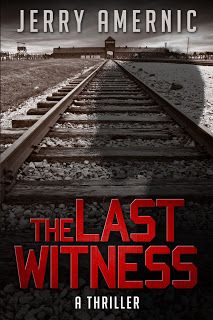
AVAILABLE ON AMAZON

Ken's Weekly Book Recommendation: The Last Witness by Jerry Amernic
The year is 2039, and Jack Fisher is the last living survivor of the Holocaust. t in a world that is abysmally complacent about events of the last century, Jack is a 100-year-old man whose worst memories took place before he was 5. His story hearkens back to the Jewish ghetto of his birth and to Auschwitz where, as a little boy, he had to fend for himself to survive after losing his family. Jack becomes the central figure in a missing-person investigation when his granddaughter suddenly disappears. While assisting police, he finds himself in danger and must reach into the darkest corners of his memory to come out alive.

AVAILABLE ON AMAZON

September 17, 2020
Q&A Session with Career Change Coach Dr. Ken Atchity
Dr. Atchity focuses on helping veterans find “fulfilling” post-service careers. He offers strategies and tactics to help you find your right career path, ready to coach you into whatever career you would love to be doing. He believes stories change the world and wants to offer all veterans a free opportunity to benefit from his experience
.

September 16, 2020
Guest Post: In The Streets by Gary Wenkle Smith
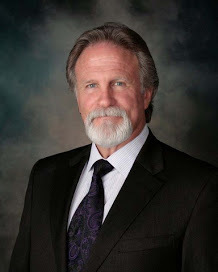 IN THE STREETS
IN THE STREETS
GARY WENKLE SMITH
Protesting and rioting cannot occupy the same space. Black Lives Matter is fast becoming the ipso facto mother of the anti-fascist movement, Antifa. Riots in the streets will obviously require the use of force. Americans have been vocal on various sides of the issue, with some proclaiming the right to vigilantism, while others claim the federal government must intervene, regardless of the constitutionality of such conduct. There are the vast numbers who claim that there must be no peace until there is justice, that being the end of police brutality, especially against America’s minority populations.
Black Lives Matter has grown to encompass nearly every metropolitan community; is believed to have membership/affiliation in the millions and denies any ties to Antifa. One video of protests in Seattle showed a woman spray painting BLM on a wall. She was either white or Mediterranean, even Arab. She turned to the female BLM participant, who had just told her: “Hey, stop that. We don’t want you to do that,” and she replied: “You do what you do, and we’ll do what we do.”
I was reminded of an agent provocateur, just like in the sixties. They were there at the behest of fictional businesses that were run by the FBI and CIA to combat the civil rights and anti-war movements. Now, they intervene in yet another war for the right to be treated equally, and the government is likely doing a comeback with Antifa. See it, or not, but fail to understand the setting at your peril.
The mostly white so-called patriots who are flooding to the cities, armed with guns and rifles, and wholly supported by the President and a good deal of law enforcement, claim they are protecting our cities from burning. They see Black Lives Matter and Antifa as inseparable. They speak openly of armed response. We have seen it in action in Kenosha.
Roger Stone, self-proclaimed agent provocateur, whose recent felony sentencing was gifted a Presidential commutation, a sixties child, who idolized Richard Nixon, still wearing his tattooed face on his back, was just the type of guy who would organize such things as Antifa. Out of date and style, Roger Stone would not be down into the streets these days, but the agenda never changes. Give the people an enemy and destroy whatever they attach themselves to, blending as though they were there from the beginning.
The leadership of the war-like group being called Antifa is unknown, but clearly there is a sophisticated sense of direction of the group. They seem to be able to recruit large numbers of people willing to riot and initiate looting, arson and other crimes of violence. Far too many Americans equate their conduct with that of Black Lives Matter. Often, they pose as BLM, with t-shirts and signs.
Far too many Americans forget, or worse, listen to a pitch that Blue Lives Matter or All Lives Matter, ignoring what brought the renewed need to take it to the streets. Colin Kaepernick was condemned for taking a knee. More black lives were taken, senselessly, often murderously, by white cops, and too many of us resort to saying we never owned slaves. We are fed and housed by a machine that feeds off the blood of the young, and pushes us through the hoops of daily life with only their information and their acquisition of wealth, while we, once again, fight each other for the crumbs off Longshanks table.
Gary Wenkle Smith is a trial lawyer, practicing law in Southern California for the past 41-years. He has tried over 200 jury trials, including over 100 murder trials and other serious felonies.
Mr. Smith has two published novels, The Last Midnight, and Inside the Lie, as well as Long Night of the Soul, a book of poetry, verse and other writings. He has also published This Side of Too Late, which is a compilation of articles and poems on the state of America since September 11, 2001. His latest publication is Deadly Night Shadows, a true story. He is also a painter. He is an active member of the 12-Step community.
He has trained for the past twenty years at the Trial Lawyer’s College with the world-famous trial lawyer, Gerry Spence, and dozens of the best trial lawyers in America.
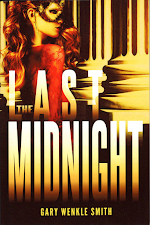
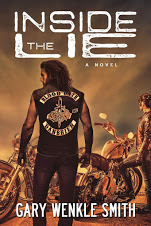
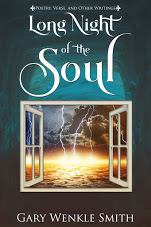
On Amazon

September 15, 2020
Getting Your Story Straight: The Law of 3s
Professional coaching tips to help you figure out point of view, structure, and master all the elements of story. Learn more: http://www.thewriterslifeline.com/

September 14, 2020
Larry Thompson In Memoriam
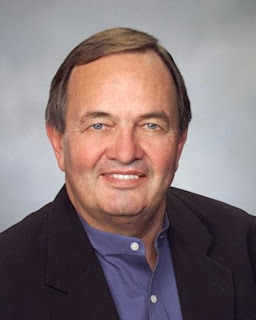 Larry Thompson became a fixture in my mind and heart the moment I met him, introduced by his brother Tommy with whom I worked at Los Angeles P.E.N. After Tommy passed, Larry told me he planned to retire from his flamboyantly successful litigation career in Houston and pursue his brother’s path. After reading his first manuscript, SO HELP ME GOD, I knew storytelling was in his DNA. Larry’s variation of the gene was dramatic to a fault, characteristic of his being a Texan to the core. He was in your face with an open hand and ready grin, and some of our best times were over martinis (he adopted Tito out of Lone Star loyalty, while I stuck stubbornly to Belvedere) in Vail, LA, New York, or Houston. He was a hearty gourmand, passionate raconteur, earnest friend, and can-do advisor with never a complaint about any card he was dealt.
Larry Thompson became a fixture in my mind and heart the moment I met him, introduced by his brother Tommy with whom I worked at Los Angeles P.E.N. After Tommy passed, Larry told me he planned to retire from his flamboyantly successful litigation career in Houston and pursue his brother’s path. After reading his first manuscript, SO HELP ME GOD, I knew storytelling was in his DNA. Larry’s variation of the gene was dramatic to a fault, characteristic of his being a Texan to the core. He was in your face with an open hand and ready grin, and some of our best times were over martinis (he adopted Tito out of Lone Star loyalty, while I stuck stubbornly to Belvedere) in Vail, LA, New York, or Houston. He was a hearty gourmand, passionate raconteur, earnest friend, and can-do advisor with never a complaint about any card he was dealt.LARRY D. THOMPSON
After graduating from the University of Texas School of Law, Larry spent the first half of his professional life as a trial lawyer. He tried well over 300 cases and won more than 95% of them. Although he had not taken a writing class since freshman English (back when they wrote on stone tablets), he figured that he had read enough novels and knew enough about trials, lawyers, judges, and courtrooms that he could do it. Besides, his late, older brother, Thomas Thompson, was one of the best true crime writers to ever set a pen to paper; so, just maybe, there was something in the Thompson gene pool that would guide him into this new career. He started writing his first novel about a dozen years ago and published it a couple of years thereafter. He wrote six highly acclaimed legal thrillers and White Witch, unique to itself. His popular Jack Bryant series is now being developed by Atchity Productions as a television series, Lawyer No Fee.

Larry is survived by his wife, Vicki who shared his exuberant attack on life. He was fatherly proud of sons Ryan, a Colorado restaurateur and distiller (try his 10th Mountain bourbon!) and Kel, an award-winning Florida filmmaker (his first feature film, THE TERRIBLE ADVENTURE, repped by Story Merchant, now making the rounds of festivals)—his daughter Casey, a health and wellness entrepreneur, and four grandchildren. Larry had retired from law to devote full time to writing.

September 12, 2020
OPINION: Addressing Racism is a Mental Health Imperative
by Vincent Atchity
“I love America more than any other country in the world and, exactly for this reason, I insist on the right to criticize her perpetually.”
– James Baldwin
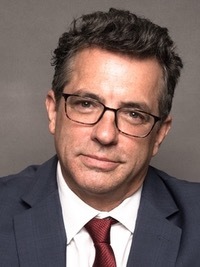
Vincent Atchity
In July, Americans celebrate the birth of independence ― it’s the month of the national holiday when we gather and celebrate our freedom from tyrannical government. But in a country where Black, Indigenous, and People of Color are less likely to have access to mental health services and more likely to have lower quality care; in a country where Black, Indigenous, and People of Color experience discrimination and systematic alienation from Life, Liberty, and the pursuit of Happiness; in a country where we have not all been treated equally — many do not experience the freedom that has been our country’s principle source of pride.
Addressing racism is a mental health priority. For far too long, we have ignored the mental health effects of violence and systemic racism on members of our society. The systemic inequities that permeate all our lives prevent any of us from achieving healthier minds. Ignoring these inequities is a disease that destroys lives, causes the privileged to remain under-developed as humans, and threatens the vitality of the nation.
When we say that we aspire to achieve healthier minds across the lifespan for all Coloradans, we mean that we must achieve a state and a nation that isn’t like this anymore. If we’re going to have healthier minds across the lifespan for all Coloradans, we need to build a state and a nation where Black people and all People of Color don’t have to fear the police, their armed white neighbors, or that they and their descendants will be trapped forever in a system of injustice.
If we’re going to have healthier minds across the lifespan for all Coloradans, we all need to call out and correct the thinking, the manners of speech, and the behaviors that derail us from our mission. If we’re going to achieve healthier minds across the lifespan for all Coloradans, we all need to learn to be better, braver people than we have ever been before. We need a second American Revolution. We can choose to number ourselves among the revolutionaries who—with each utterance, decision, and action—join forces to free ourselves from the mind-stunting, strength-sapping twin tyrannies of proud, vaunting ignorance and smug satisfaction with the status quo. Or we can fail to rise to the challenge of this revolution and remain part of the problem, as enemies of freedom, science, and humanity. There are no innocent bystanders when it comes to the health of the mind.
Given our heartfelt understanding that Black Lives Matter, Mental Health Colorado supported a number of bills this legislative session to address or correct for disparities that have been disproportionately harmful to Colorado’s Black communities and other communities of color throughout the state’s history. There is so much more corrective work to do. We are weighted down with laws and failures in law-making that perpetuate the most disgraceful shortcomings in our still aspirational civilization.
Mental Health Colorado is following Bebe Moore Campbell’s* lead in honoring July as Black, Indigenous, and People of Color Mental Health Month. When we have ensured that all Black, Indigenous, and People of Color are free at last from systematic discrimination and oppression, when all receive the support and resources needed to truly thrive, then we will be strong and thriving and will truly have cause to celebrate.
Until then, we can celebrate that we have set our sights on the worthiest goal and that we are determined to achieve it before the sun sets on another generation.
Vincent Atchity is the president & CEO of Mental Health Colorado , the state’s leading advocate in promoting mental wellness, ending shame and discrimination, and ensuring equitable access to mental health and substance use care.
*Bebe Moore Campbell was a mental health advocate, journalist, best-selling author, and teacher. Read more about her here.
 Special to the Post
Special to the PostThe Pagosa Daily Post welcomes submissions, photos, letters and videos from people who love Pagosa Springs, Colorado. Call 970-903-2673 or email pagosadailypost@gmail.com

September 11, 2020
Ken's Weekly Book Recommendation: Yes, Mr. DeMille: At the Right Hand of a Hollywood God
Phil Koury was Cecil B. DeMille's attorney, and stood close as DeMille made some of the most successful movies of his time. This is a first-hand account of the ups and downs of one of our most controversial Hollywood legends. Not to be missed if you love learning about the mechanics and foibles of the film business.
AVAILABLE ON AMAZON

September 10, 2020
TRULY EXCELLENT WRITING: The Ghosts of Ponce De Leon Park by Fred Willard

AVAILABLE ON AMAZON

Part Four
Del woke up, or he thought he woke up. It seemed like he was back in the kudzu field and there were men standing around him, but something reminded him of the mission back at Nashville.
It was the picture the reverend had taken him aside to see. Some old drunk had painted it from the Book of Revelation showing skeletons on winged horses, the four horsemen of the apocalypse riding above the battle field at Armageddon. He hadn't understood then what the preacher had meant, showing it to him like that, but now he knew that he had been shown his death.
He might as well have put his hands on Del's head in benediction and said, "Go forth my son, and die by skinhead," because Del knew the four men looking down at him were going to kill him. They didn't have any hair and their skin was stretched tight and showed their skulls. The moonlight made it seem they had bleached bone instead of flesh and their eyes had retreated in their sockets. They leaned over Del lying in his bedroll and his own piss.
"He smells rank," one of the men said.
"Let's put him out of his misery."
"It's my legs," Del said. "They ain't no good."
"Don't worry old man. God's going to give you a new body."
Del saw the heel of the boot coming down on his face, felt bone crunching, and heard a sound like loud ringing in his ears. He let go of everything and didn't know nothing they did after that.
Del was unconscious and then he saw the kudzu in front of his face again. There was a man standing next to him. The man knelt down and put his hand on Del's shoulder.
"Hello, son. I've been wanting to talk to you for a long time."
Del knew he was dead because it was his father's voice. He stood up quickly, held his arm in front of him and marveled at it. It was milky white under the full moon and had perfect skin like a baby's, like he had never worked in the sun or fallen down.
The dark green kudzu was silver where it was kissed by the light and his father's face was beautiful like a blessing Del had never seen in this world.
"I've been wanting to tell you that I always loved you. I didn't leave you that night, and that's the truth. Some bad men took me away from the ball park in their automobile. They took me out of town and killed me. They cut my gut open so my body wouldn't float, and they wrapped me in burlap, and tied cement blocks to me, and they threw me in the Chattahoochee River. I swear, son, that I never meant to leave you that night. I always loved you. And now I've been sent down here to take you up to heaven," he said.
Del picked up the bottle, took a little sip and saw the hunger on his father's face as he looked at the sherry. He wouldn't offer him any. He'd wait for him to ask ... or maybe even beg.
"If you just come from heaven, how come you want a drink so bad?" Del asked.
"They sent me down to get you, son. You don't go with me, you got to stay by yourself."
"You always were a liar. How do I know it’s heaven you’re taking me to?"
"Could you give me a taste of that wine? Then we could go up there. Don't you want to be with the other people? Your mother's up there."
Del turned around, kicked his dirty bed roll and started walking fast to the railroad, then running down the tracks leaving his father far behind. Now that God have given him his new body, he didn't need nobody or their stinking lies. From now on he would travel alone.
A Note From the Editor
There is, in every city of some size, "a street of appetites" — a place where people with hungers congregate, a street where things happen in dark places. In Atlanta, The Bitter Southerner’s hometown, that street has always been Ponce de Leon Avenue. Ponce, as we call it, is home to the legendary Clermont Lounge, where strippers whose average age is 46.5 shake their moneymakers, and the Majestic Diner, which has been serving hangover prevention and cures 24/7 since 1929. Ponce always begs to be the setting of a novel. Back in 1997, an Atlanta writer named Fred Willard delivered a great one. “Down on Ponce” was hard-boiled crime fiction, solidly in the tradition of Raymond Chandler and Jim Thompson. “Down on Ponce” permanently planted itself in my brain. I was 36 years old when it came out, and I’ve gone back to reread it several times. For a guy like me, who loves crime fiction written with verve and feistiness, “Down on Ponce” was just the ticket, particularly because I knew its setting like the back of my hand. But in the last decade or so, the literary world hasn't seen much of Fred Willard's work. Then a few weeks ago, out of the blue, Willard sent The Bitter Southerner a short story. This made me a happy guy — happier still because his story is set once again on Ponce, Atlanta's “street of appetites,” as Willard so aptly describes it here. You'll experience two Ponces in this story. One is the Ponce of the 1990s, when the kudzu-shrouded, long-unused railroad tracks that bisect the street were still the home of much nefarious activity. Today, those tracks are a pedestrian trail called the BeltLine. The other is the Ponce of the mid-20th century, when the Negro League Atlanta Black Crackers and the minor-league Atlanta Crackers shared Ponce de Leon Park, an old baseball field now long gone. Today, a Whole Foods sits about where center field was. A crime does occur in this story, and the writing is as blunt as the best crime fiction, but in “The Ghosts of Ponce de Leon Park,” Willard is now exploring different characters with different hungers — the homeless. We meet Bob and Del soon after they arrive in Atlanta, having come to the city after Del “just wore out my welcome too many places” in Nashville. Speaking of welcomes, we’re happy to welcome one of our favorites, Fred Willard, to the pages of The Bitter Southerner. — Chuck Reece
Repost from the Bitter Southerner






